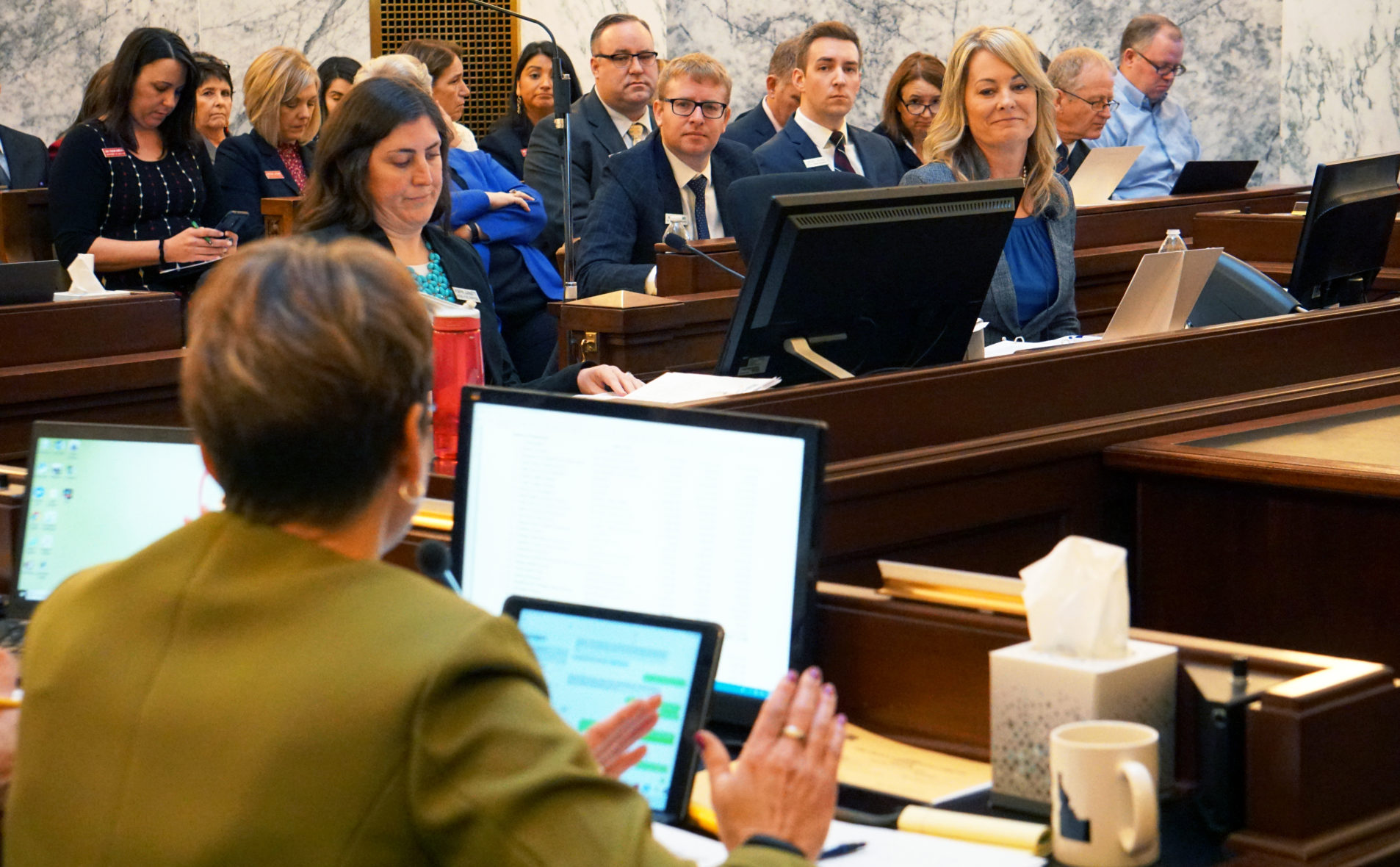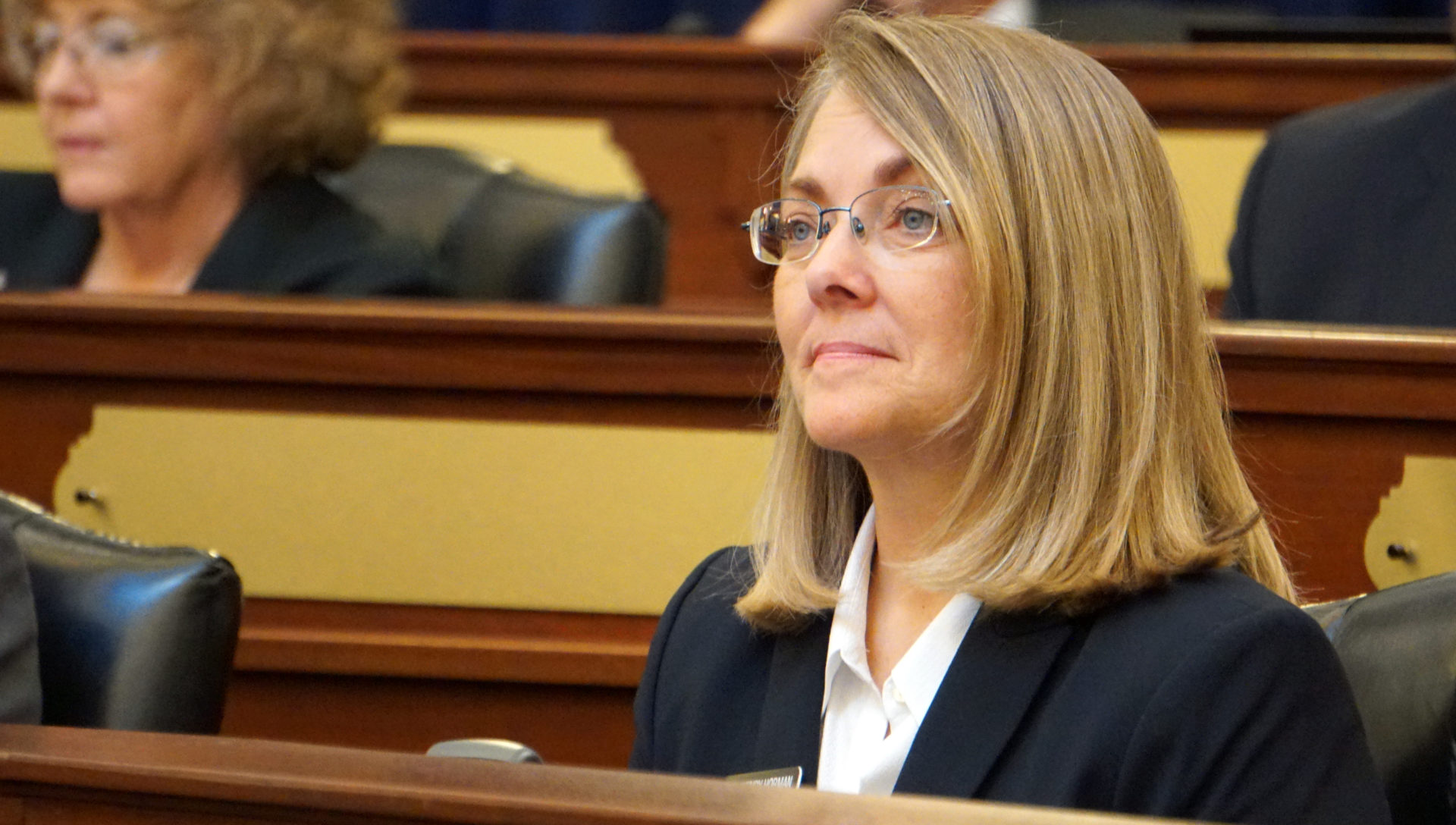Superintendent of Public Instruction Sherri Ybarra asked lawmakers to go above and beyond the five-year plan to invest in teacher pay as she rolled out her public school funding request Thursday.
Overall, Ybarra is seeking more than $1.9 billion in the 2020 budget year for K-12 schools, which would represent an 8 percent increase above current funding levels if legislators do not add supplemental funding to the current budget.
As expected, the bulk of new funding in Ybarra’s budget would be directed toward educators’ salaries. She’s calling on the Joint Finance-Appropriations Committee to approve $48 million in new funding to pay for the fifth year of raises under the 2015 career ladder salary law.
She also wants nearly $28 million in additional new funding to increase salaries above and beyond the career ladder, particularly for more experienced teachers. Finally, Ybarra wants almost $12 million in new funding for salary incentives called master educator premiums that would reward Idaho’s most accomplished and experienced teachers.

“This budget request reflects an investment in the future, and human capital is our most important asset,” Ybarra said.
“This shows that, once again, we are investing in human capital.”
Ybarra’s budget request leaves JFAC with a decision to make. There are significant differences between what she is proposing and the budget request Gov. Brad Little put forth earlier this month. Little is seeking a 6.1 percent funding increase, even with the latest estimates for student enrollment growth factored in.
Ybarra and Little disagree when it comes to funding school safety, classroom technology, discretionary spending, mastery-based education and professional development.
Here are some comparisons between the two budget requests:
- Ybarra and Little both recommend fully funding the fifth year of pay raises under the career ladder.
- Ybarra is seeking $27.8 million in additional funding to go above and beyond the career ladder, while Little is asking for $11.2 million in teacher pay raises to bring the minimum educator salary to $40,000.
- Ybarra is seeking $3 million in new funding for classroom technology, while Little recommends keeping existing funding levels flat.
- Ybarra is seeking $14.8 million in new funding for discretionary spending, of which she would direct $7.4 million for health insurance costs. Little is not recommending an increase to current discretionary funding levels.
- Ybarra recommends no increase in funding for the literacy initiative designed to help struggling young readers, while Little recommends increasing literacy funding by almost $13.2 million.
- Ybarra is seeking just more than $1 million in new funding to expand the mastery-based education program and remove the cap on districts that can participate in the pilot program. Little recommended keeping existing funding flat until a new task force can study the issues.
- Ybarra is recommending $2 million in new funding for professional development training for teachers, while Little recommends no new funding.
- Ybarra is recommending $1.1 million in new funding to expand the math initiative, while Little recommends no new funding.
- Ybarra is seeking $19.1 million in one-time, supplemental funding from the current budget year for her Keep Idaho Students Safe Plan. Little recommends no funding.
School safety
Ybarra brought up her KISS proposal a couple of times Thursday, but legislators did not really ask about it or commit to acting on her supplemental funding request.
JFAC co-chairman Rick Youngblood, R-Nampa, said the hearing focused on Ybarra’s top priorities: teachers and safety. The state is continuing to put money into salaries, and has put funding into safety.
As for KISS, he said, “not this year.”
Youngblood said he sat in on a KISS webinar about a month ago, and was left confused about the whole process. “I think it’s something we need to digest better.”
In an interview after her presentation, Ybarra said she would continue to work on school safety even if legislators don’t approve funding for her supplemental KISS proposal.
“It’s on the forefront of everybody’s mind in Idaho and, as the mother of a public schools student, I am not any different,” Ybarra said.

JFAC Vice Chair Wendy Horman, R-Idaho Falls, said there are a few issues with Ybarra’s KISS request. First, state revenues are coming in millions of dollars short of projections, likely due to payroll withholding issues. Second, Horman said the Office of School Safety and Security is already carrying out a “longterm, sustainable” school safety plan. Third, because Ybarra’s request was for one-time supplemental funding without carryover spending authority, the entire $19 million would not to be distributed and spent by June 30, the end of the current fiscal year. Horman said that would be a very tight timeline, considering the state’s bidding and contracting requirements.
“Cashflow issues during the current budget year are concerning to JFAC members and that amount, $19 million in the current budget year, is a big ask,” Horman said.
Ybarra said she understands revenue shortfalls make the budget situation more complicated this year.
“When it comes to the funding of safety for our students, I realize this year we do have to live within our means and we will continue to work on safety regardless of where there is a dollar,” Ybarra said.
Should lawmakers re-open the books on the current funding year and pay for Ybarra’s proposed $19.1 million school safety plan, that would change funding levels for 2019 and, as a result, change the overall percentage increase Ybarra is seeking for 2020. If the entire KISS supplemental proposal is funded, that changes the percentage increase Ybarra is seeking for 2020 to 6.8 percent. If lawmakers don’t fund it, the increase Ybarra is seeking in 2020 would be 8 percent. None of the dollar amounts for 2020 would change either way, only the percentage changes.
- During the hearing, Horman recognized Idaho Education News multimedia journalist Andrew Reed. After four years on the job, Reed’s final assignment for EdNews was shooting video and photos of Ybarra’s budget presentation. Horman wished him well and thanked him for his service in Idaho. Reed starts a new job at EdSource next month in Oakland, Calif.
